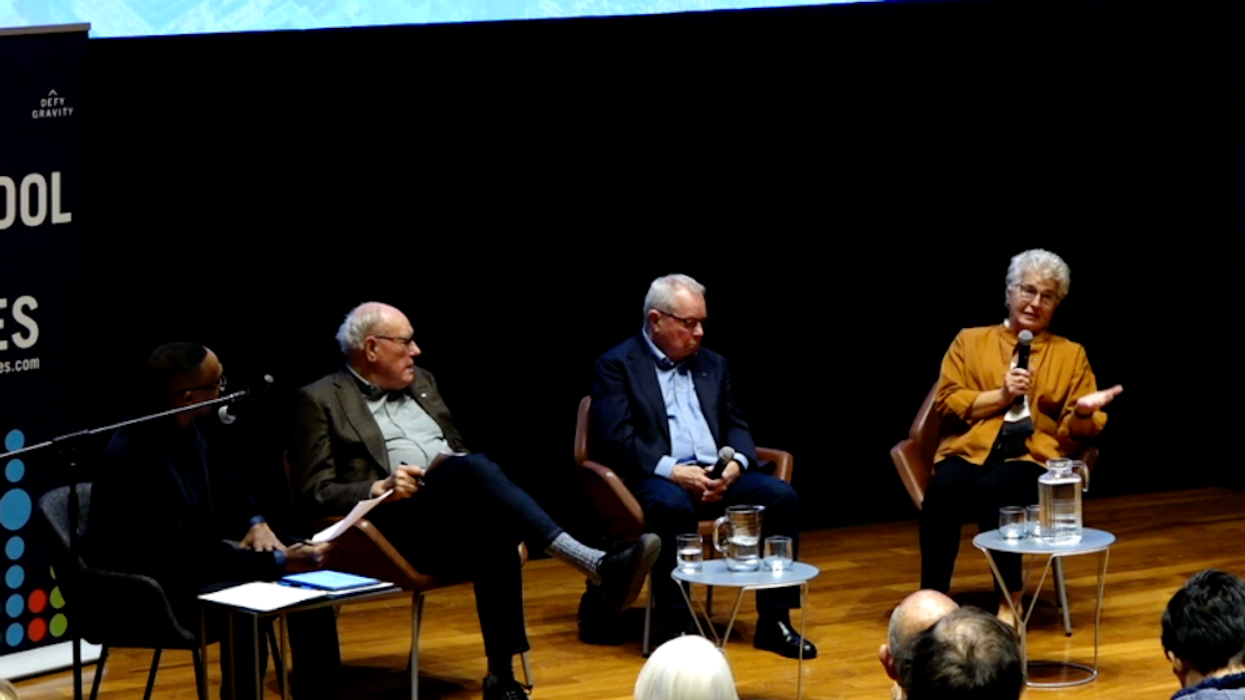
Five former Toronto mayors publicly condemned the "strong mayor" powers that the provincial government voted last month to grant to Toronto and Ottawa.
At a panel organized by University of Toronto's School of Cities, former mayors David Crombie, Art Eggleton, Barbara Hall, David Miller, and John Sewell denounced the centralization of decision-making power into one person. Under the new provincial legislation, Toronto and Ottawa mayors will be given the authority to veto council decisions, prepare the budget, and appoint and remove high-ranking staff members such as the city manager.
While Ottawa Mayor Jim Watson has said he does not see a need for such legislation, Toronto Mayor John Tory supported the move, noting that it was in line with his mission to get more housing built in the city. Tory has experienced resistance from Council on certain housing issues, notably on the legalization of rooming houses, saying he has not been able to bring it to a vote because it doesn't have enough support to pass. The strong powers would allow Tory to veto such decisions.
Although it has been argued that the strong mayor powers will help to move the city forward, the former Toronto mayors fear for a weakening democracy.
"No mayor worth their salt would accept these powers or advocate for them, first of all, because they're tied to provincial priorities and that's just outrageous," Miller said. "It's completely undemocratic. Why should the province tell the people in Toronto what they want in their city and how to build it? Secondly, nobody campaigned for this. Nobody has put this democratically to the people of Toronto or even the people Ontario and said we want to change this."
Eggleton agreed, saying that although earning enough support from Council requires extra work on the part of the mayor, he believes it's worth it.
"It helps ensure that all the voices in City Council are coming into play on this decision making," Eggleton said. "It's a threat to local democracy because you add additional powers to one person, taking it away from not only the counselor, but from the people that they represent in their respective constituencies."
The strong mayor powers, however, are not entirely unilateral. The provincial legislation does allow for City Council to overturn a Mayor's veto with a two-thirds vote. But the former mayors do not see this as having any inhibitive effect in practice.
"The mayor is going to make sure that he or she has a third of the Council on his or her side by offering them committee chairmanships," Sewell said. "I mean, it's now the mayor that gets to appoint us so, in fact, the chance of the mayor losing on that two thirds vote is very, very slim."
The provincial legislation, dubbed the Strong Mayors, Building Homes Act, was billed as a way to speed up development in cities and get homes built faster. The province has long lamented the lengthy wait times for rezoning and development applications at the municipal level, even going so far as introducing plans to deprive cities of revenue from application fees if they're not able to rapidly increase processing times.
Although the former mayors agree that Toronto's municipal approval process is too slow, it's not Council that's to blame, they said. Hall noted that the increased size of wards -- a result of the provincial government cutting the number of city councillors by nearly half -- makes it extremely difficult to deal with developments on a hyperlocal level. Sewell added that the City has been "starved of money by the provincial government," leaving them without the resources to hire adequate planning staff.
"The province is really trying to shrug off its own responsibility for housing and imply somehow if only City Hall would get more housing built, but that is just wrong," Crombie said. "They know that's wrong."
The Province's More Homes For Everyone Act, tabled by Municipal Affairs and Housing Minister Steve Clark earlier this year, calls for municipalities to limit the amount of consultation done with communities -- something the mayors see as an unwelcome, continuing theme in provincial legislation.
"When the province says it's too slow, I think what they really mean is it's those pesky residents of Toronto who want to have a say over the development of their neighborhoods that are taking too much time... which is not remotely true," Miller said. "You end up with far better developments when when people have a say."
The Strong Mayors, Building Homes Act is set to take effect November 15, shortly after the municipal election.





















